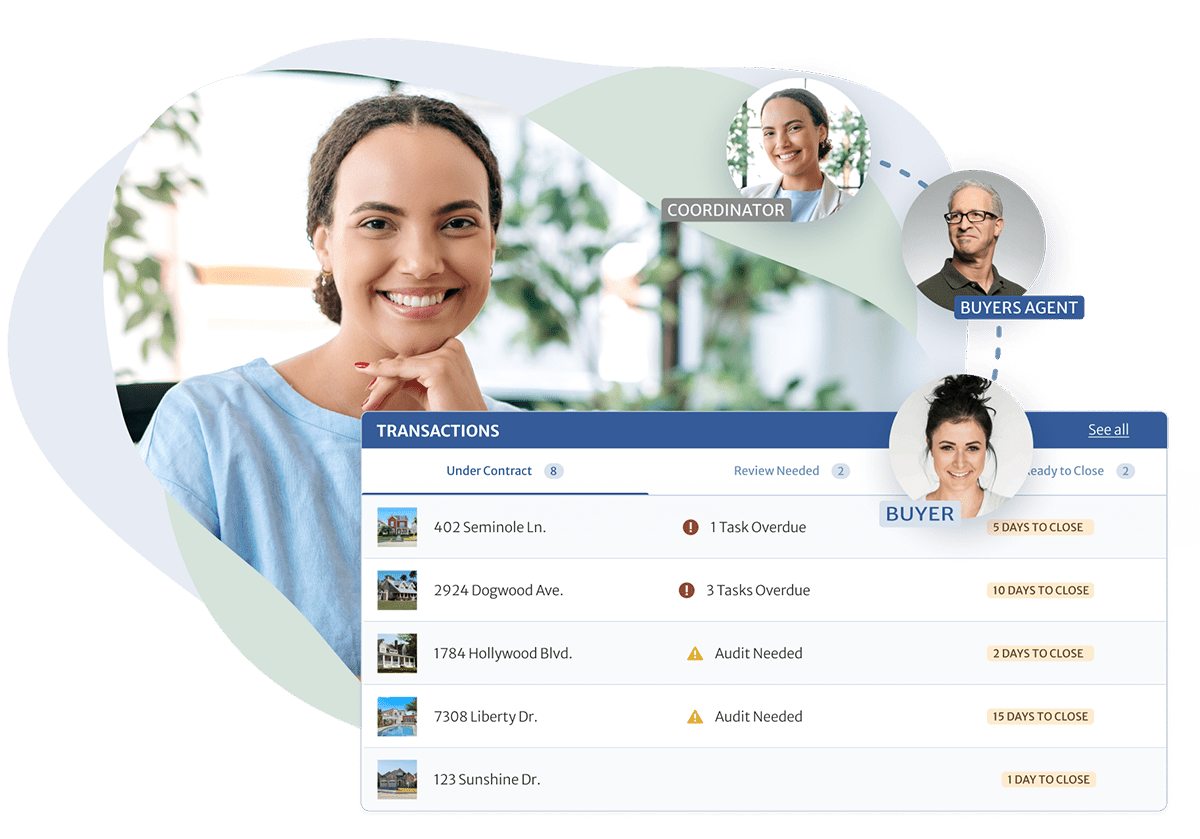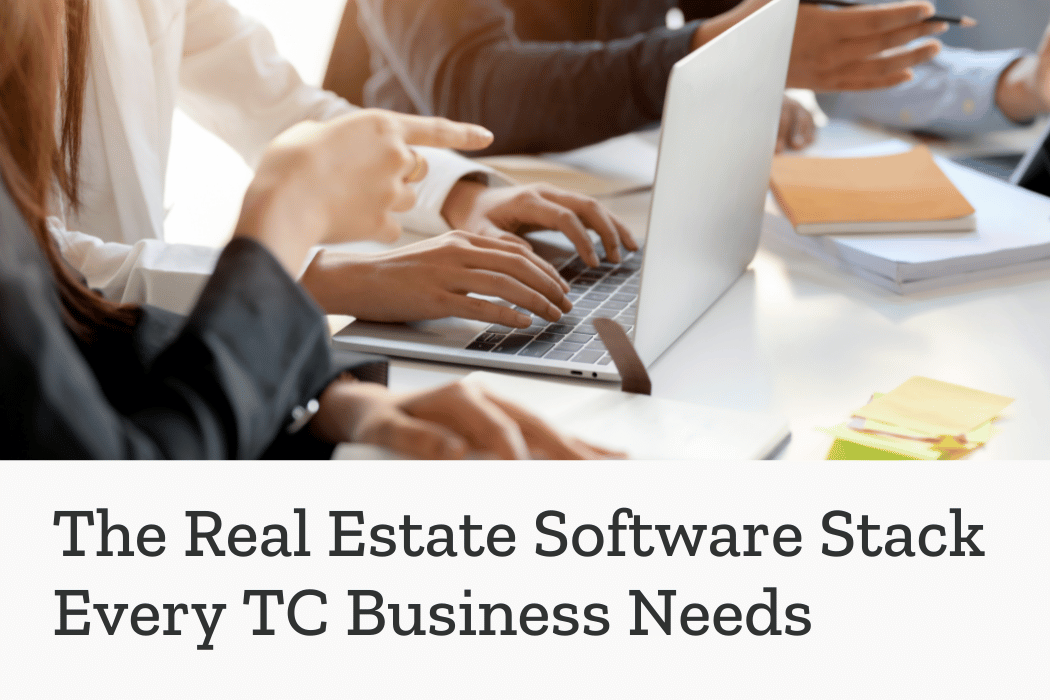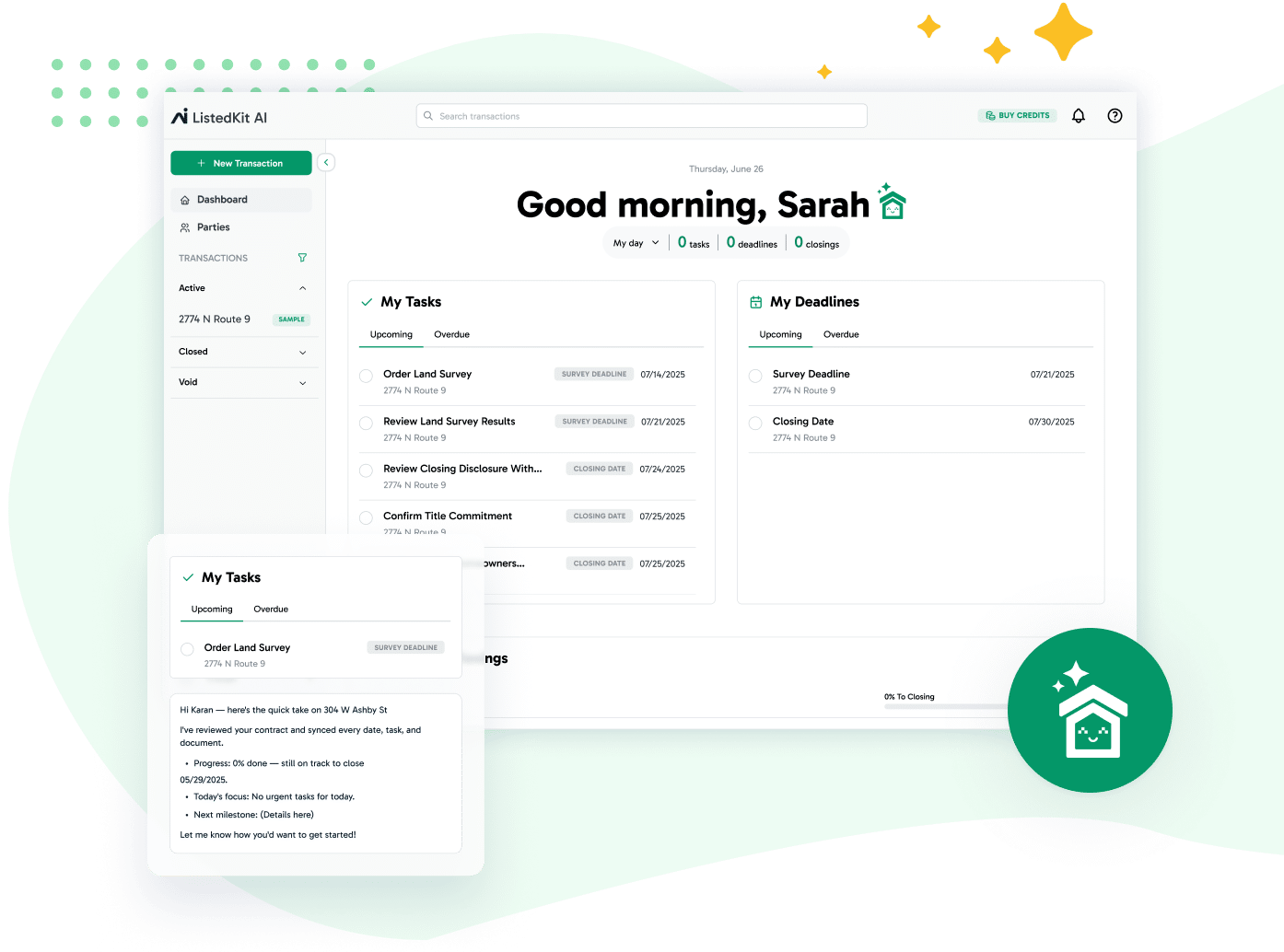As an independent real estate Transaction Coordinator (TC), choosing the right software can make or break your business. The ideal TC software streamlines your workflow, enhances productivity, and helps you manage multiple transactions seamlessly. But with so many options available, how do you decide what’s best for your needs? Let’s explore the essential software for TCs and the key questions to ask when building your tech stack.
Understanding the Importance of TC Software
Transaction Coordinators play a crucial role in real estate deals, managing the paperwork and logistics from contract to closing. The right TC software can significantly improve your efficiency, allowing you to handle more transactions without sacrificing quality or burning out. Here are the key components of a transaction coordinator business tech stack:
Transaction Management Software
At the heart of every TC’s tech stack is a robust transaction management platform. This software serves as your central hub, organizing all aspects of your deals in one place.
Key features to look for:
- Document storage and organization
- Task management and checklists
- Deadline tracking
- Client communication tools
- Integration with other real estate software
Popular options include ListedKit, TCDocs, and Transactly. When evaluating TC software, consider how well it aligns with your specific workflow and the types of transactions you handle most frequently. As well as which one will allow you to scale effectively.

Juggling Too Many Transactions?
Manage more deals without stress using ListedKit AI-powered contract processing and dynamic checklists.
E-Signature Software
Electronic signatures have become the norm in real estate transactions. While many transaction management platforms include e-signature capabilities, some TCs prefer standalone solutions for their advanced features.
Leading e-signature platforms:
Consider how well these integrate with your primary TC software and whether they offer features like templates and bulk sending.
Client Relationship Management (CRM) Software
While your transaction management software may include basic CRM functionality, a dedicated CRM can help you nurture client relationships and grow your business.
Popular CRM options for real estate professionals:
Look for features like automated follow-ups, email marketing tools, and the ability to track your pipeline of potential clients.
Calendar and Scheduling Software
Keeping track of deadlines, appointments, and important dates is crucial for TCs. While your transaction management software likely includes a calendar, a dedicated scheduling tool can enhance your productivity.
Consider options like:
These tools can help you manage your time more effectively and make it easy for clients to book appointments with you.
Communication and Collaboration Tools
Effective communication is key to successful transactions. While email remains important, consider additional tools to streamline your interactions with clients, agents, and other parties involved in transactions.
Popular options include:
- Zoom or Google Meet for video conferencing
- Loom for creating quick video explanations
- ListedKit for sharing live timelines with agents and clients
Document Management and Cloud Storage
While your TC software likely includes document storage, having a separate cloud storage solution can provide extra security and easier sharing of large files.
Consider:
Look for features like version history, easy sharing options, and robust search capabilities.
Accounting and Invoicing Software
Managing your finances is crucial for any independent business. Look for software that can help you track expenses, create invoices, and manage your cash flow.
Popular options include:
Consider how well these integrate with your other software and whether they offer features specific to real estate transactions.
Questions to Ask When Choosing Your TC Software
1. How user-friendly is the interface?
Your TC software should be intuitive and easy to navigate. A steep learning curve can slow you down and impact your productivity.
2. Does it integrate with other tools I use?
Look for software that plays well with others. The ability to connect your transaction management platform with your e-signature, CRM, and accounting software can save you time and reduce errors.
3. How customizable is it?
Every TC has a unique workflow. Your software should be flexible enough to adapt to your processes, not the other way around.
4. What kind of support is available?
When issues arise, you need them resolved quickly. Look for software providers that offer responsive customer support through multiple channels.
5. Can it scale with my business?
As your TC business grows, your software needs may change. Choose solutions that can accommodate an increasing number of transactions and potentially additional team members.
6. What reporting and analytics features does it offer?
The ability to track your performance and generate reports can help you identify areas for improvement and demonstrate your value to clients.
7. How mobile-friendly is it?
As a TC, you may need to access information on the go. Look for software with robust mobile apps or responsive web interfaces.
8. What’s the pricing structure?
Consider not just the initial cost, but also any ongoing fees. Some software charges per user, while others charge per transaction. Calculate the long-term costs based on your projected growth.
9. Does it offer automation features?
Automation can significantly boost your productivity. Look for software that can automate repetitive tasks like sending reminders or automate third-party emails.
Building Your Ideal TC Software Stack
Selecting the right TC software is a personal decision that depends on your specific needs, workflow, and business goals. Start by identifying your pain points and prioritizing the features that will have the biggest impact on your efficiency.
Consider starting with a comprehensive transaction management platform like ListedKit, which offers AI-powered contract processing, dynamic checklists, and email templates. Then, supplement with additional tools as needed to create a fully integrated tech stack.
Remember, the goal of your TC software is to simplify your work, not complicate it. Choose tools that work well together and align with your business processes. With the right software stack, you’ll be well-equipped to grow your independent TC business, manage more transactions, and provide excellent service to your clients.




